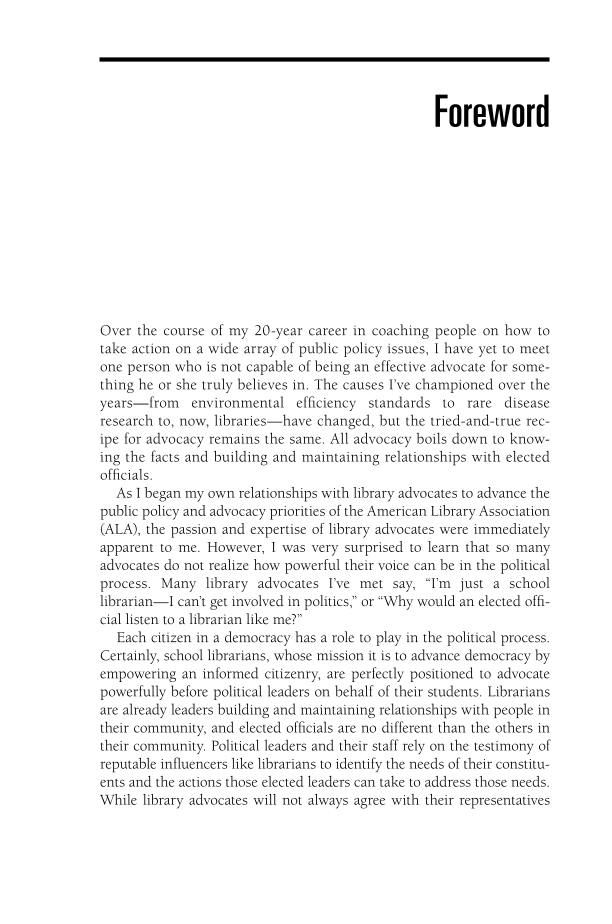Foreword Over the course of my 20-year career in coaching people on how to take action on a wide array of public policy issues, I have yet to meet one person who is not capable of being an effective advocate for some- thing he or she truly believes in. The causes I’ve championed over the years—from environmental effi ciency standards to rare disease research to, now, libraries—have changed, but the tried-and-true rec- ipe for advocacy remains the same. All advocacy boils down to know- ing the facts and building and maintaining relationships with elected offi cials. As I began my own relationships with library advocates to advance the public policy and advocacy priorities of the American Library Association (ALA), the passion and expertise of library advocates were immediately apparent to me. However, I was very surprised to learn that so many advocates do not realize how powerful their voice can be in the political process. Many library advocates I’ve met say, “I’m just a school librarian—I can’t get involved in politics,” or “Why would an elected offi - cial listen to a librarian like me?” Each citizen in a democracy has a role to play in the political process. Certainly, school librarians, whose mission it is to advance democracy by empowering an informed citizenry, are perfectly positioned to advocate powerfully before political leaders on behalf of their students. Librarians are already leaders building and maintaining relationships with people in their community, and elected offi cials are no different than the others in their community. Political leaders and their staff rely on the testimony of reputable infl uencers like librarians to identify the needs of their constitu- ents and the actions those elected leaders can take to address those needs. While library advocates will not always agree with their representatives
Document Details My Account Print multiple pages
Print
You have printed 0 times in the last 24 hours.
Your print count will reset on at .
You may print 0 more time(s) before then.
You may print a maximum of 0 pages at a time.












































































































































